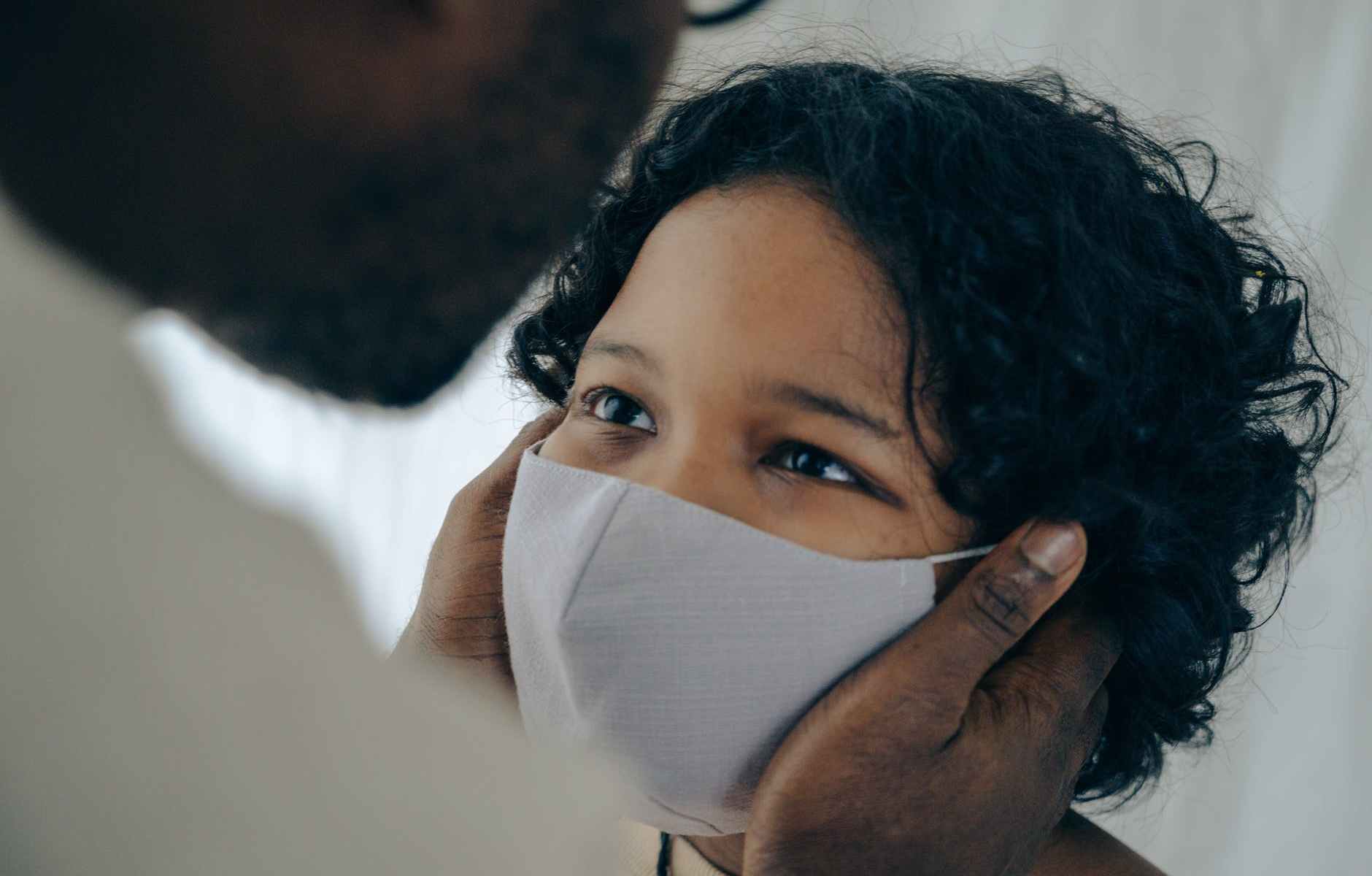
Helping Your Child Cope with Separation during Covid
Disclaimer: It is important for your child to first have an understanding of what covid-19 is and how it spreads. You can refer to this online resource: https://childdevcenter.org/news/social-stories-for-kids-about-covid-19/ce: for social stories for different age groups, including children with ASD. This blog post is to help children cope with separation once they have a general understanding of the virus.
The Covid-19 pandemic has been a challenging time for people of all ages, especially our little ones. Having to switch over to remote learning, not seeing friends as often as they would like (or at all) and now being separated from family members and loved ones who may be exposed to covid-19, have underlying health issues or are healthcare workers is a lot to take in. As a Child Life Specialist trained to help children cope with separation and loss, I wanted to share tips on helping your child cope with separation from loved ones during this pandemic.
IF YOU ARE A HEALTHCARE WORKER AND HAVE DECIDED TO SEPERATE FROM YOUR CHILD TO PROTECT THEM FROM POSSIBLE EXPOSURE:
Validate Emotions
To start, it is important to validate your child’s emotions, letting them know it is okay to feel worried or scared for their loved one. Validating their emotions helps them to feel understood and facilitates trust between the parent and child relationship. Avoid phrases such as: “Don’t be upset” or “Don’t cry” since that may prevent them from opening up to you about the concerns they may have.
Explain your Role
It is important to let your child know what your role is as a healthcare worker during the pandemic. Explain to him or her that you have a very important job in taking care of the sick people during this time. Your child, too, has a very important and heroic job: letting mommy and/or daddy go to work to help those in need. This will give your child a sense of importance to not only view the parents as heroic figures but themselves as well.
How you are Staying Safe
One of your child’s biggest concerns may be if mommy and/or daddy are safe. Let your child know that you have received special training in your job to help you stay safe with the people you work with. It is important to let them know the importance of the various personal protective equipment (PPE) worn at work:
- Goggles keeps mommy’s eyes safe from germs
- Gloves keep mommy’s hands clean
- Gowns keep germs off of mommy’s clothes
It is also helpful to let your child know all other precautions your facility is taking to ensure safety for their employees: “Mommy checks her temperature every day when she comes to work to make sure she is healthy”, “Mommy washes her hands after working with sick people to make sure she keeps germs away”.
When they will see you again
Explain to your child that you love them a lot and you do not want to make them sick by spreading germs to them. You will see them when it is safe to do so. In the meantime, provide them with various modes of communication with you (facetime, voice calls, messaging, emails or even written letters) as well as a consistent schedule of when you and your child can talk. Help them to stay in touch with you while keeping them informed on how you are doing and the measures you are taking to continuously stay safe.
SEPARATING FROM GRANDPARENTS OR FAMILY MEMBERS WHO HAVE UNDERLYING HEALTH ISSUES:
Explain risks for the Elderly
It may be very difficult for your child to stay away from grandparents who are very near and dear to their heart. You can explain the risks for the elderly by saying: “As our bodies get older, it can take longer to recover if and when we get sick. So we don’t want to make grandma or grandpa sick by spreading our germs to them. Our germs are too big for their body“. Assure them you will visit them as soon as it is safe to do.
Explain the Underlying Health Issues
It may be difficult for your child to understand why they must keep a distance from certain loved ones who do not appear to be sick but have underlying health issues that your child may be unaware of.
It may be helpful to first talk about those underlying health issues with your child in a developmentally appropriate way: “Grandpa Al has a sickness called Diabetes. This just means he has more sugar in his blood than most people which makes him feel sick. It is different from a cold or fever because he cannot give it to someone else but he will have it for a long time. He takes a special medicine everyday to keep his body healthy”.
Once your child has a general understanding of his or her loved one’s underlying health issue, you can further elaborate by saying “since Grandpa Al’s body is already working hard to stay healthy, we don’t want him to get more sick because it might take him longer to get better. We are keeping a distance to help keep him safe because we love him”.
It is important to let your child know that these family members love him or her a lot too and want them to be safe as well.
Communication
Help your child find ways to keep in touch with these family members (writing cards, video calls, audio calls, emails, etc). Plan a possible drive by. Help your child make and decorate a large sign (“I miss you!” “Hope to hug you soon!”) that can be read from their loved one’s door or window.
Stay Involved
Help your child play an active role in their loved one’s care-taking (by picking out their groceries, helping mom prepare a healthy meal for them or even sending them a warm sweater). Helping your child stay involved will make them feel connected and closer to their loved one.
SEPARATING FROM A FAMILY MEMBER WHO IS QUARANTINING:
If a family member has been exposed to covid-19 and is currently quarantining in their home, your child may be wondering if they are okay and when it will be safe to see them again.
They are Not Alone
It is important to let your child know that their loved ones are not alone and that they have special helpers to take care of them if they get sick. You can explain to your child the role of the helpers (grandpa has a special delivery person who gets his groceries, grandpa’s nurse visits him to make sure he is getting better, etc).
Safety
Explain to your child that your loved one is staying home so that they can recover. Let your child know that the family member loves them a lot and does not want them to get sick during this time. Their loved one will see them as soon as it is safe to do so.
Countdown
You can make a calendar of 14 days and count down after each day if you feel comfortable with your child seeing them after their quarantining period is over. You can have your child cross out each day that has passed to help them keep track.
Communication
Help your child to keep in touch with their loved one during the quarantine (make them cards, audio call, send songs, video/virtual calls, emails, etc).
Stay Involved
Help your child stay included in the recovery process. Update him/her on their loved one’s condition and allow your child to offer help when appropriate. If you are offering to deliver groceries, have your child pick out which packet of soup to get. If you are making and sending your loved one a healthy meal, have your child help by stirring the salad.
SEPARATING FROM A FAMILY MEMBER WHO HAS COVID-19 AND IS IN THE HOSPITAL:
Safety
Let your child know that they cannot see their loved one in the hospital because their loved one wants them to be safe and not be around other sick people.
They are not alone
Reassure your child that your loved one is not alone in the hospital and that there is a team of people helping to take care of them. Explain to them the different roles of the healthcare workers and the measures they are taking to keep their loved one safe (ie. the doctors help decide which medicine will help Aunt Jen feel better; the nurses help her feel comfortable, etc).
Stay Connected
Help your child communicate with their loved one in the hospital (making cards, audio/video calls, sending pictures/videos, voice recordings, etc).
Developmentally Appropriate Health Updates
Children often imagine scenarios far worse than they may be. Update your child on how their loved one is doing in the hospital with language that is appropriate for their age. This will help them cope better during this time
For example: instead of saying “Uncle Joe is in the intensive care unit (ICU) because he’s really sick”, you can say “Uncle Joe is in a special area of the hospital called the ICU. This makes sure that there is someone always ready to help him if he gets more sick”.
If the loved one is on a ventilator you can say: ‘Your uncle’s brain needs to rest to help his body recover. There is a special tube in your uncle’s mouth that is helping him to breath while his brain is resting. The tube is connected to a breathing machine, called a ventilator, that the doctors and nurses are monitoring at all times”.
Seek Professional Help
Reach out to professionals if you feel that your child is not coping well and is struggling to keep up with their normal routines such as school assignments and/or other daily activities. It may also be helpful to seek out (virtual) peer support groups to help your child stay connected with other kids who may be going through similar experiences.
Please feel free to comment or leave questions in the comment box. Share any tips not mentioned above that you think may benefit other parents whose children may be struggling with separation during the covid-19 pandemic.
Hope you are all staying safe. See you in my next post!



